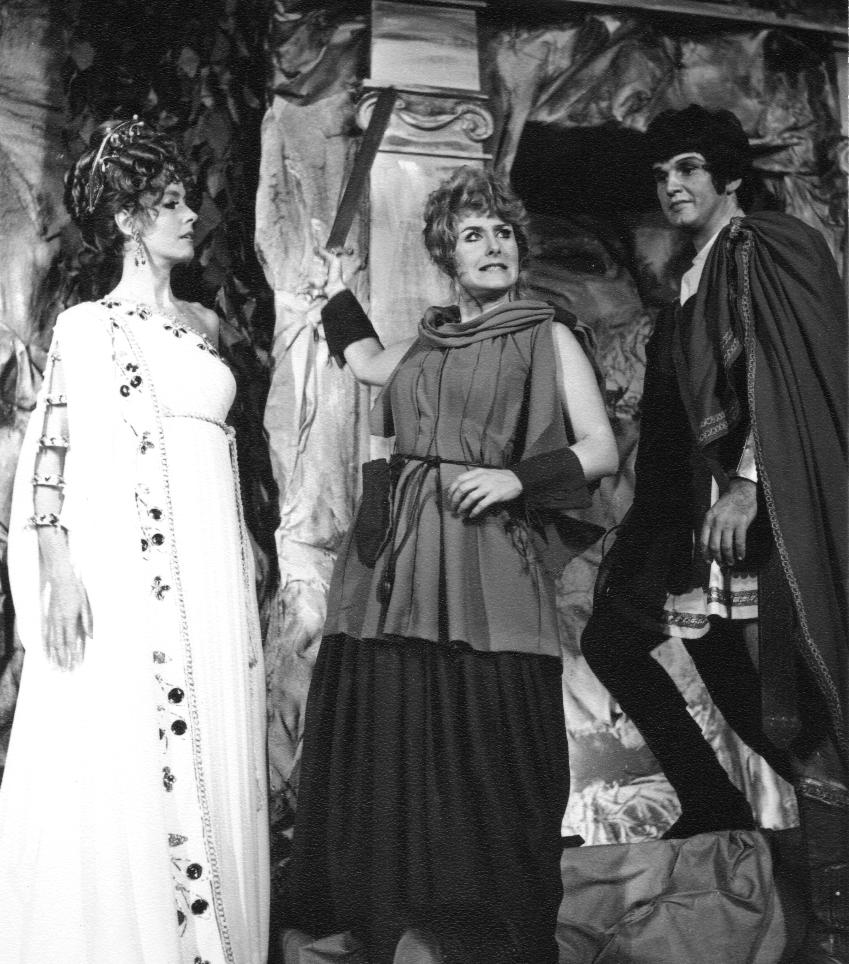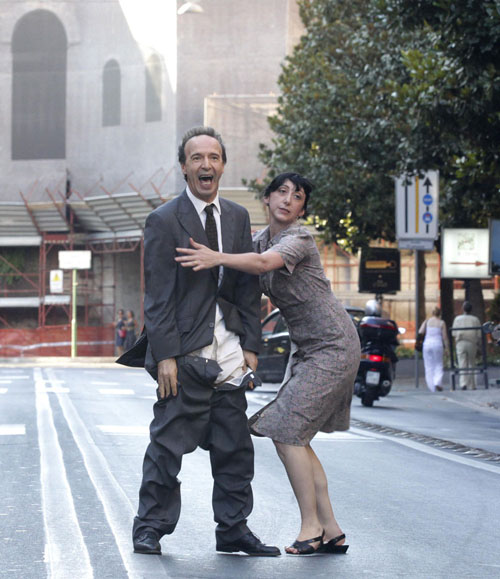The essence of comedy is the triumph of nature over intellect. The human comedy where hedonism replaces heroism. Tragic heroes die for what is nobler in the mind, comic heroes live for what is livelier in the flesh. The tragic hero prefers death to loss of name, the comic hero prefers life, however anonymous. In the end, the happiest tale of all is the odyssey that finishes with laughter in the house…
Comedy is always a victory for “la forza di natura.” What a contrast to the anti-comic outlook of the Middle Ages, when Saint Thomas Aquinas’s injunction was an absolute law of the Church: suppress all sensual feelings by force of reason. Boccaccio’s Decameron showed the futility of even legislated abstinence. La forza di natura will always prevail, and this is precisely what human comedy presents and bears repeating: the triumph of instinct over intellect. Like the song, “there is no one here but us chickens.”

—The story is taken from an episode in the Satyricon of Gaius Petronius, who was director of court entertainment under the Emperor Nero. As a masterpiece of black humour it has attracted the attention of numerous composers and dramatists, including Charles Dibdin in The Ephesian Matron (1769) and Christopher Fry (A Phoenix Too Frequent). It also formed the basis of a section of Fellini’s notorious Satyricon.
A young and beautiful widow, accompanied by her reluctant maid, has taken residence in her husband’s tomb. Her decline is arrested by the arrival of a young soldier, who should be guarding the bodies of three recently hanged criminals—Read More:http://www.michaelhurd.org.uk/compopera.html
For what is called instinct may be substituted libido, lebende Kraft, life-force, Bergson’s elan vital, or Schopenhauer’s erotic “will,” as in The World as Will and Idea, where comedy is viewed as “the arousal of a continued yes-saying to the will to love.” Freudians might prefer to define comedy as the id’s victory over the superego. This is especially apt in the case of Boccaccio’s Filippo Balducci since the superego is a precipitate of prohibitions imposed by parental authority. By whatever name, instinct is not only a will to live, but to produce life.
Comedy is essentially erotic; la forza di natura is the healthy sexual appetite of Filippo’s son, an urge that can overwhelm everything, even death.

—G. Wappers, Boccaccio alla corte della regina Giovanna—Read More:http://decameron.weebly.com/introduzione-4g.html
A second story further illustrates this vital aspect of comic triumph: the tale of the Matron of Ephesus in Petronius’s Satyricon. This account has a further dimension, since, like Chaucer, Petronius also describes the reaction of the audience to whom it is told, here a group of sailors on a voyage. When her husband suddenly dies, a young woman of Ephesus renowned for her piety is so grief-stricken that she follows the funeral procession into his tomb and remains weeping by the corpse. Five days pass. She will not eat or drink. Her servant can do nothing but sit silently as her mistress grieves to death.

—Titolo originale: Nero Fiddled
Anno: 2012
Data uscita: 20/04/2012
Paese: USA
Genere: Commedia
Cast: Alec Baldwin, Alessandra Mastronardi, Alessandro Tiberi, Alison Pill, Antonio Albanese, Ellen Page, Flavio Parenti, Greta Gerwig, Isabella Ferrari, Jesse Eisenberg, Judy Davis, Ornella Muti, Penélope Cruz, Riccardo Scamarcio, Roberto Benigni, Sergio Rubini, Woody Allen—Read More:http://www.cinefilos.it/v2/database-film/roma-con-amore-scheda-film
Meanwhile, certain criminals have been crucified not far from the tomb. Guards are stationed to prevent relatives from stealing the bodies. Night falls. The single soldier on duty gazes across the cemetery and sees “lumen inter monumenta clarius fulgens,” “a light shining brightly among the tombs.” His natural curiosity impels him to investigate, and he discovers the beautiful mourner. Deeply moved, he brings his meager supper into the tomb and offers it to her. She refuses, but her maidservant cannot. And, having eaten, she joins the soldier’s attempts to persuade her mistress. She even quotes Virgil, “Do you think shades and ashes can really “feel” anything?” ( to be continued)…





 COMMENTS
COMMENTS